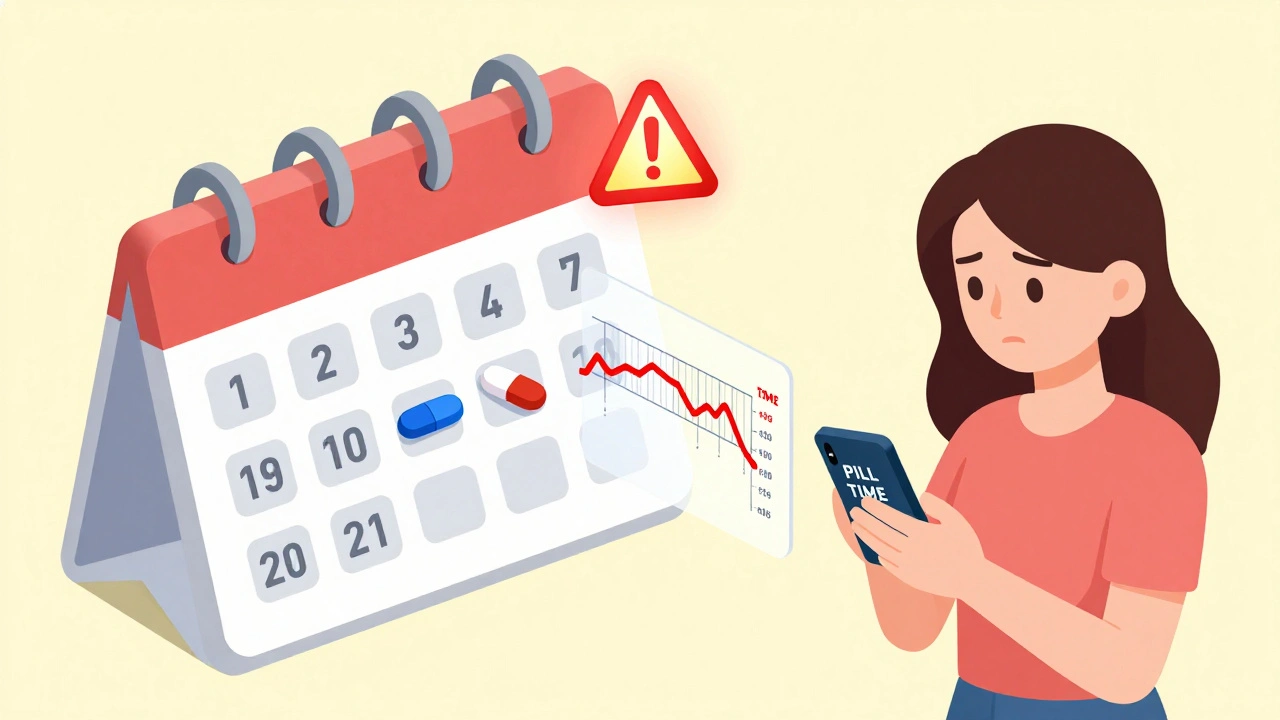Women's Health: practical guides, treatments, and everyday tips
Welcome to the Women's Health hub. Here you get clear, useful info about common issues: safe online meds, vaginal irritation, skin changes from hormones, birth control and ovarian cysts, and how inflammation affects your cycle. Each piece points to practical steps you can use today.
Want to buy prescription medicine online? Start by using a verified pharmacy that asks for a prescription, shows a physical address, and has pharmacist contact info. Avoid sites with super-low prices or ones that send meds without a prescription. Keep your prescription copy and compare pill images and packaging. If you’re unsure about Sarafem or similar drugs, talk with your prescriber before ordering.
Having vaginal irritation is awkward to discuss but simple handling helps. Describe symptoms clearly: itch, burning, discharge, or pain during sex. Ask your partner to listen and help with small changes like switching soaps, avoiding scented products, and keeping sex gentle until you feel better. If symptoms return or worsen, get tested for infections and follow treatment fully.
Hormones, skin, and birth control
Hormonal shifts during pregnancy or menopause often change skin tone. Mottled spots can feel scary but a dermatologist can rule out serious causes and recommend topical lighteners, sunscreen, or procedures. If a new patch appears with other symptoms like weight loss or fatigue, see a doctor.
Some birth control pills, like combinations with desogestrel and ethinyl estradiol, can reduce ovarian cysts by stopping ovulation. That helps many people, but every body reacts differently. Track symptoms for a few cycles and report pelvic pain or bloating promptly. Your clinician can switch methods or order an ultrasound if needed.
Inflammation and your cycle
Inflammation can disrupt ovulation and menstrual regularity. Chronic inflammation from stress, poor sleep, or diet may worsen conditions like PCOS or endometriosis. Try simple steps: improve sleep, cut back on processed food, add anti-inflammatory foods like leafy greens and fatty fish, and consider light exercise. If your periods are very irregular or painful, ask about testing for inflammatory markers or hormonal imbalance.
Use this hub as a starting point. Read the detailed guides on buying Sarafem safely, talking to your partner, skin discoloration and hormones, how desogestrel-ethinyl estradiol links to ovarian cysts, and how inflammation affects ovulation. For urgent symptoms—heavy bleeding, severe pelvic pain, fever, sudden skin changes—seek immediate care. Small changes in how you manage medications, hygiene, diet, and stress can make a big difference in comfort and health.
Before any appointment, write down your symptoms, medications, cycle dates, and any treatments you tried. Bring photos of skin changes and a list of questions: Is this normal? Do I need tests? What are the side effects? Can we try lifestyle changes first? If you use online pharmacies, save receipts and chat logs. For ongoing issues, keep a simple symptom diary for two months to show patterns. If you feel dismissed by a clinician, ask for a second opinion or seek a specialist like a gynecologist or dermatologist. Stay curious.
Birth control pills are widely used but not foolproof. Learn how effective they really are, what side effects to expect, which medications can interfere, and who should avoid them.
View More
Learn which antihistamines are safe during pregnancy, what to avoid, and how to manage allergies without risking your baby's health. Evidence-based guidance for expecting parents.
View More
Learn practical ways to manage tibolone side effects like spotting, bloating, and mood swings during menopause. Get tips on dosage, lifestyle changes, when to call your doctor, and alternatives if it's not working for you.
View More
Learn step‑by‑step how to evaluate success rates, costs, accreditation and support services so you can pick the infertility clinic that best fits your needs.
View More
Learn where and how to safely buy Sarafem online, tips for choosing a legit pharmacy, prescription rules, and what to watch for when purchasing.
View More
Discussing vaginal irritation with your partner may feel awkward, but it's crucial for your comfort and health. Start the conversation by expressing your feelings and describing your symptoms honestly. Reassure your partner that this is a common issue and not an indicator of infidelity or poor hygiene. Encourage them to be supportive and understanding, and possibly partake in any lifestyle changes or treatments. Remember, it's important to involve them in the process without blaming or shaming.
View More
As a woman, I've noticed that mottled skin discoloration can be quite concerning for many of us. I recently learned that hormonal changes, especially during pregnancy and menopause, can significantly contribute to this skin issue. It's important for us to understand that these changes are usually harmless and can be managed with proper skincare routines. Additionally, consulting a dermatologist can help in finding the right treatment and ensuring there are no underlying health issues. So ladies, let's stay informed and take good care of our skin during these crucial times in our lives!
View More
As a blogger, I've recently been researching the connection between Desogestrel-Ethinyl Estradiol and ovarian cysts. It turns out that Desogestrel-Ethinyl Estradiol, a combination hormone medication, is often prescribed to help prevent pregnancy and regulate menstrual cycles. Interestingly, this medication can also help treat and prevent ovarian cysts, which are fluid-filled sacs that can develop in the ovaries. By regulating hormone levels and preventing ovulation, Desogestrel-Ethinyl Estradiol may reduce the risk of cyst formation and alleviate any existing cyst-related symptoms. I find it fascinating how versatile this medication is and how it can benefit those struggling with ovarian cysts.
View More
In my latest research, I've discovered a fascinating connection between inflammation and the regulation of ovulation and menstruation. It appears that inflammation can impact hormone levels, leading to disruptions in the menstrual cycle. Moreover, chronic inflammation may also contribute to conditions like polycystic ovary syndrome (PCOS), endometriosis, and even infertility. On the flip side, regulating inflammation through diet and lifestyle changes can potentially improve overall menstrual health. It's amazing to see how interconnected our body systems are and the role inflammation plays in our reproductive health.
View More







